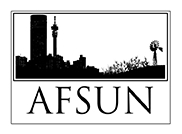Document Type
Journal Article
Publication Date
10-9-2015
Department
Balsillie School of International Affairs
Abstract
This article examines the social construction and contestation of gender and gender roles in the city of Blantyre in Malawi. In fieldwork on gendered household roles related to food security, interviews with men and women revealed a distinct set of connotations with the word gender, which reflected Malawians’ historical and contemporary engagement with concepts of development, modernity, and human rights. We denote the Malawian concept of gender as gender in order to distinguish the word participants used in interviews from the more widely accepted conventional definition. We then use this distinction to highlight the ways in which ideas of gender equality have been introduced and received in the Malawian context. The urban setting of the research is key to drawing out the association of gender with Westernization, bringing into focus the power dynamics inherent in the project of translating global discourses of gender rights and gender equality into meaningful social change in developing countries. Gender in Malawi denotes a top-down (and outside-in) process of framing Malawi’s goals for gender equality. This creates political constraints both in the form of resistance to gender, because it resonates with a long history of social change imposed by outside forces, and in the form of superficial adherence to gender to appear more urban and modern, especially to a Western researcher. Local understandings of gender as gender undermine efforts to promote gender equality as a means to address Malawi’s intense urban poverty and household food insecurity.
Recommended Citation
Liam Riley & Belinda Dodson (2015) ‘Gender hates men’: untangling gender and development discourses in food security fieldwork in urban Malawi, Gender, Place & Culture, 23:7, 1047-1060, DOI: 10.1080/0966369X.2015.1090407


Comments
This is an accepted manuscript version of an article published online by Gender, Place and Culture: A Journal of Feminist Geography on October 9, 2015, doi: 10.1080/0966369X.2015.1090407.